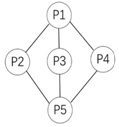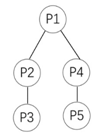服务热线
搜题▪组卷
| Activity | Description | Member of staff | Cost |
| Outdoor Advcature (OUT) | Take yourself out of your comfort zone for a week,discover new personal qualities,and learn new skills.You will be able to take in a number of activities from canoeing to wild camping on Dartmoor.Learn rock climbing and work as a team,and enjoy the great outdoor environment. | Mr.Clemens | £140 |
| WWI Battlefields and (WBP) |
On Monday we traverl to London. After staying overnight in London,we travel on Day 2 to northern France to visit the World War I battlefields.On Day 3 we cross into Belgium.Thursday sees us make the short journey to Paris where we will visit Disneyland Paris park,staying until late to see the parade and the fireworks.Our final day,Friday,sees us visit central Paris and tour the main sights. | Mrs. |
£425 |
| Crafty Foxes(CRF) |
Four days of product design centred around textiles.Making lovely objects using recycled and made materials. Bags,cushions and decorations…Learn skills and leave with mondern and unusual textiles. | Mrs.Goode | £30 |
| Potty about Potter (POT) |
Visit Warner Bros Studio,shop stop to buy picnic,stay overnight in an approved Youth Hostel in Streatley﹣on ﹣Thames,guided tour of Oxford to see the film locations,picnic lunch outside Oxford's Christchurch,boating on the River Cherwell through the University Parks,before heading back to Exeter. | Miss Drake | £150 |
| Share with us! Would you like to have your writing published in this magazine? Then let us know!We pay for stories,anecdotes and jokes: |
|
| Anecdotes and Jokes $50 What's made you laugh recently?A funny sign?A colleague's be haviour?Got a joke?Send it in for Laughter is the Best Medicine! Email:Juliet@sws.com Smart Animals Up to$100 Send us a tale about the strange behaviour of unique pets or wildlife in up 300 words. Email:audry@sws.com Power of Love Up to$150 Acts of generosity can change lives or just give you that warm feeling full of love.Share your moments 100-500 words. Email:susan@sws.com My Story $350 Do you have an inspiring or life-changing story to tell?Your story must be true,unpublished,original and 800-1000 words. Email:nanjc@sws.com |
 |
| For more information,please visit:http://www.sws.com./share | |
| A.RichardⅢ. | B.Love's Labour's Lost. |
| C.As You Like It. | D.The Merchant of Venice. |
| A.It has two groups of actors. | B.It is the leading theatre in London. |
| C.It performs plays in BSL. | D.It is good at prducting comedies. |
| A.On Saturday 28 Apil. | B.On Sunday 29 April. |
| C.On Tuesday 22 May. | D.On Tuesday 29 May. |
 B.
B. C.
C. D.
D.

dgyy2020
2020-07-10
高中英语 | | 阅读理解